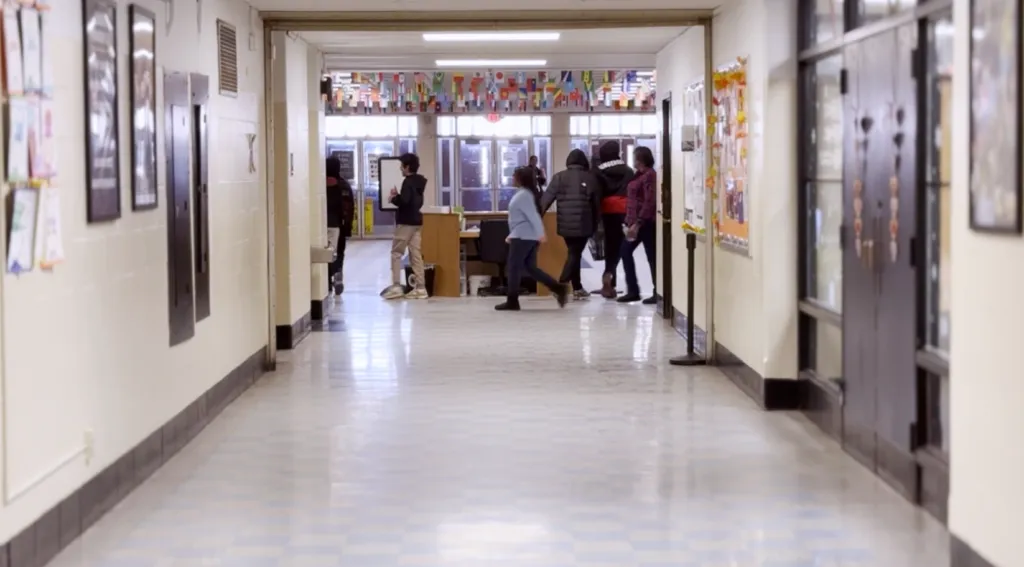
Alain Locke Community School | Neubauer Fellowship School Visit
To kick off 2025, PASL toured Alain Locke Community School. Led by ALCS’s student council and Principal Baretta Massey (Neubauer Fellow 2024, Cohort 8), PASL enjoyed an inspiring morning learning about the community school model and the partnerships the school has established.
Principal Massey has been instrumental in addressing the critical need for comprehensive student support beyond regular school hours. Through the development of an extensive Out-of-School Time (OST) program, Massey has created a safe and nurturing environment for students to engage in academic enrichment, extracurricular activities, and social-emotional learning. Check out our recent “Leaders and Learners” interview with Principal Massey, below.
Massey: Recognizing the critical need for comprehensive support beyond regular school hours, I spearheaded the development of an extensive Out-of-School Time (OST) program at Alain Locke Community School. This initiative offers students a safe and nurturing environment where they can engage in academic enrichment, extracurricular activities, and social-emotional learning. By collaborating with ACE and the City of Philadelphia’s Office of Children and Families as well as community-based organizations, the program provides services such as homework assistance, arts and cultural enrichment, and athletic activities. This holistic approach aims to enhance student achievement, foster personal growth, and strengthen community ties, ensuring that our students are well-equipped for future success.
Q: What led you to pursue this program?
Massey: The implementation of the Out-of-School Time (OST) program at Alain Locke Community School was driven by several pressing community challenges. Academic performance data indicated that many students were not meeting grade-level expectations, particularly in reading and mathematics, highlighting the need for additional academic support. Additionally, families expressed concerns about the lack of safe and structured environments for children after school hours, which increased the risk of exposure to negative influences and behaviors. The community also faced limited access to enrichment activities that promote holistic development, such as farming, arts, sports, and STEM programs. Furthermore, there was a recognized need for enhanced social-emotional learning opportunities to help students develop essential life skills. Collectively, these issues underscored the necessity for a comprehensive OST program to support the academic, social, and emotional well-being of students at Alain Locke Community School.
Q: And what have the results been?
Massey: Implementing the Out-of-School Time (OST) program at Alain Locke Community School has yielded several positive outcomes. Firstly, by providing structured academic support and enrichment activities, we have seen improvements in students’ academic performance, particularly in reading and mathematics. This aligns with findings that OST programs can help bridge opportunity gaps and boost student success.
Offering a safe and supervised environment during after-school hours has continued to reduce students’ exposure to negative influences and risky behaviors in the community, contributing to enhanced emotional stability and social adjustment. The diverse range of extracurricular activities, including broadcasting, arts, sports, and STEM projects, fosters creativity, critical thinking, and a positive attitude toward learning. The OST program aims to support holistic development, leading to increased student engagement, improved academic outcomes, and stronger community ties.
The Neubauer Fellowship’s emphasis on developing critical leadership skills and fostering collaborative networks equipped me with the strategies necessary to design and execute comprehensive initiatives that enhance student outcomes. Through this program, I have connected with a community of dedicated principals and leaders who share best practices and innovative solutions, enabling me to effectively address the specific needs of our students and community. This collaborative approach has been pivotal in creating an OST program that not only supports academic achievement but also promotes holistic development for our students.